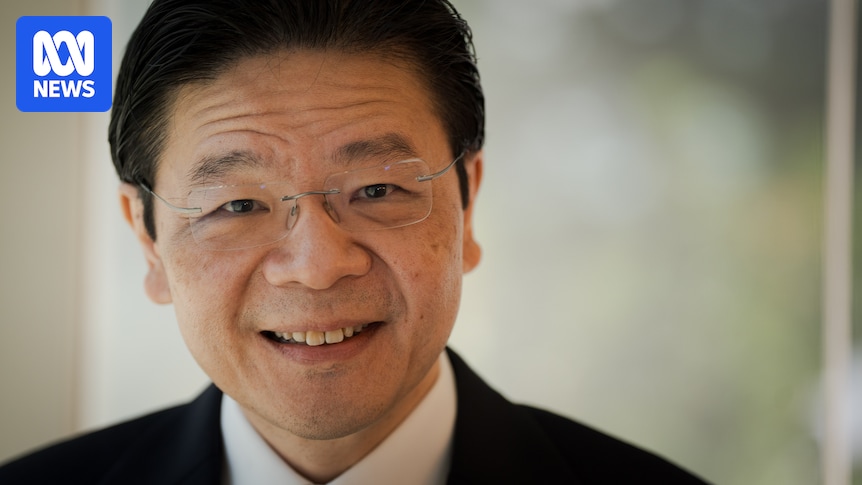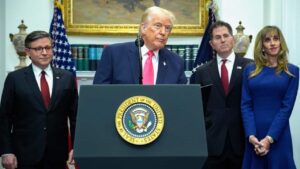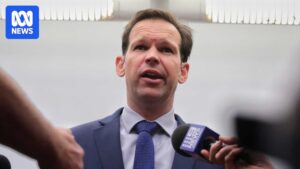
Singapore is seeking to expand its military ties with Australia, including an increased presence of Australian troops in the city-state, as part of an enhanced trade and defense relationship. This was revealed by Prime Minister Lawrence Wong during his visit to Australia for the annual leaders’ meeting between the two nations.
The announcement comes shortly after a landmark defense treaty was signed between Australia and Papua New Guinea, allowing up to 10,000 Papua New Guineans to serve with the Australian Defence Force. This development highlights Australia’s growing military engagements in the region.
Prime Minister Wong arrived in Australia as Singapore celebrates the 60th anniversary of its founding and the 60th anniversary of Australia’s recognition of the new state. In an exclusive interview with ABC, Wong emphasized the importance of the partnership between Singapore and Australia, especially in a rapidly changing global landscape.
Strengthening Defense Ties
Singapore’s strategic location and significant defense spending underscore its commitment to regional security. The country mandates two years of national service for all male citizens and is a member of the Five Power Defence Arrangements alongside Australia, Malaysia, New Zealand, and the United Kingdom.
Wong expressed a desire to upgrade the comprehensive strategic partnership with Australia, which encompasses trade, defense, science, innovation, and more. “We already have a very strong base. I think we can go further,” Wong stated, highlighting discussions on mutual access to defense facilities and cooperation in defense technology.
Australia has long hosted military training for Singapore’s armed forces, and Wong’s comments suggest a reciprocal arrangement could be on the horizon. “We are discussing the specifics of what we can do together with Australia,” he noted, pointing to existing agreements with the United States as a model.
Regional Security and AUKUS
The conversation naturally turned to AUKUS, the trilateral security partnership between Australia, the United States, and the United Kingdom. Wong reiterated Singapore’s belief in the importance of America’s security presence in Asia for regional stability.
“America’s security umbrella in this part of the world is crucial for providing a framework for stability and continued prosperity in Asia,” Wong remarked.
Wong emphasized the need for an open and inclusive region, warning against domination by any single power. “We reject zero-sum competition,” he said, advocating for deep engagement by all major powers in Southeast Asia.
Economic Concerns and Global Shifts
Wong also addressed the end of the American-led, rules-based order that has facilitated global trade growth. With the United States withdrawing from this framework, Singapore faces potential economic fragmentation.
“For multiple decades, we’ve seen a continued trend of lower and more uniform tariffs. Now, for the first time, we’re entering an era where tariffs are higher, less uniform, more volatile,” Wong explained.
Singapore is particularly concerned about US tariffs on key exports like pharmaceuticals and semiconductors. The country is negotiating with American counterparts to mitigate these impacts. “We do expect an impact on our economy,” Wong admitted, noting signs of reduced business spending and confidence.
The Taiwan Question
Another significant concern is the future of Taiwan, with Wong warning that any conflict could engulf the entire region. Singapore maintains a one-China policy and opposes unilateral moves away from the status quo.
“We oppose Taiwanese independence. We have a one-China policy,” Wong stated, emphasizing the importance of peaceful resolutions.
Wong expressed hope that neither the United States nor China would escalate tensions, though he acknowledged the risk of miscalculation. “The risk is an accident or a miscalculation,” he cautioned, reflecting on historical precedents.
As Singapore and Australia navigate these complex geopolitical landscapes, their partnership appears more crucial than ever. The discussions underway may well shape the future of regional security and economic cooperation.





